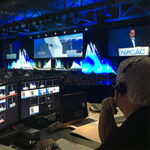
While the main thrust of PPACA is to extend health insurance to the U.S. population, it also has direct implications for medical meetings and exhibitions — including a “Sunshine” provision that requires pharmaceutical and medical-device manufacturers to report to the U.S. Department of Health and Human Services any “transfers of value” to physicians and other “covered recipients.” Meeting planners likely will be put in the position of helping their exhibitors fulfill that requirement by collecting certain information from exhibit-hall attendees.
Now that PPACA is a reality, how are medical meeting professionals — especially those who deal with exhibitors — feeling about it? We asked Jackie Beaulieu, executive vice president of the Healthcare Convention & Exhibitors Association (HCEA), how Obamacare might affect medical conferences, trade shows, and other events:
Do you expect the new health-care law to affect medical meetings in any way? If so, how?
The implications of this [Supreme Court] ruling are vast, and there have been many promises that members of Congress will still try to repeal the law (including an unsuccessful vote the week of July 9 to do just that). But for the time being, this ruling indicates that all systems are still go for the implementation of the Sunshine provisions in the law, which require the reporting of certain “transfers of value” health-care companies give to physicians by collecting the physicians’ National Provider Identifier (NPI) numbers.
Many health-care associations are not currently collecting the NPI numbers of their convention attendees, yet disclosure of the NPI number by pharmaceutical and medical-device exhibitors is required by the PPACA. Being out of compliance can impact decisions about exhibiting and sponsoring, which is why medical associations and their exhibitors are looking for solutions now.
This ruling has forced many healthcare associations to be much more collaborative with health-care exhibitors in finding new and creative ways to assist them in complying with this ruling. Some associations are now planning on collecting the NPI number when attendees register for their meeting. Educating attendees as to why collecting this information is necessary is also key. For instance, many attendees do not realize that all NPI numbers can currently be found on a public website.
Do you plan on adding programming that addresses PPACA — such as educational sessions explaining the law’s relevance to your members and attendees?
HCEA has conducted a number of educational webinars, as educational workshops during both our Annual Meeting and Healthcare Convention Marketing Summit, that detailed the impact of the Sunshine rules on health-care conventions and convention marketing. Through HCEA’s education program and content, we will continue to provide information and education on this topic that is relevant and pertinent to our membership as we move toward implementation of the rules and beyond, so that our members are comfortable that they have the most current and timely information on this issue. HCEA will continue to study long-term the affects of how this new health-care law impacts our membership and industry.
Do you expect the new health-care law specifically to affect medical exhibitors?
Yes, if it affects medical meetings, it will typically affect medical exhibitors. Health-care exhibitors, in addition to many other marketing tactics, have sometimes included transfers of value in their marketing. The law, which was originally passed in 2010, requires that gifts to health-care professionals be reported. It incorporates a $10/$100 gift limit. That is, any transfer of value greater than $10 must be reported, and an aggregate annual value of $100 or more must be reported (similar to many of the relevant state laws).
There are other important details that should be mentioned as well:
- The law appears to standardize these gift limits nationally. Specifically, the federal law preempts relevant state laws requiring reporting of gifts to health-care professionals.
- It does not, however, appear to preempt state laws that ban gifts to health-care professionals outright, or that contain any other restrictions that go beyond the federal law.
- The law applies to any applicable health-care company “operating in the United States.” This presumably would include companies headquartered outside the country but doing business in the U.S.
Over the years and during the implementation of many new regulatory and compliance issues, HCEA has found that health-care exhibitors are very capable and adapt to change by discovering new ways to educate health-care professionals about medical therapies and products while still complying with the law. We have seen this demonstrated over and over, and this has changed the exhibit floor to be less about selling and much more focused on product education and learning. Giveaways are no longer the focus, and so the exhibit-hall environment is much more focused on learning.
More Resources
Read an article on what medical associations should know about collecting physician attendees’ NPI numbers, written by HCEA Director of Content and Education Jennifer Palcher-Silliman.



